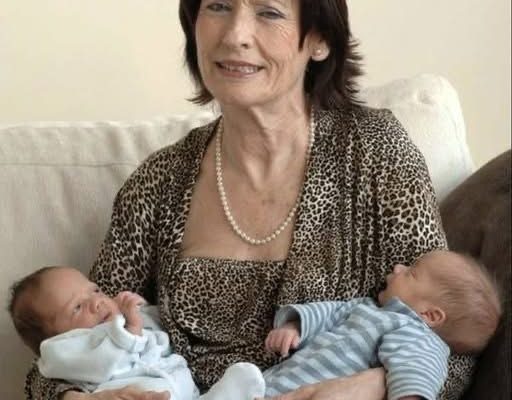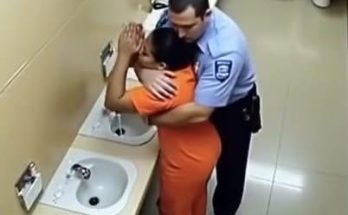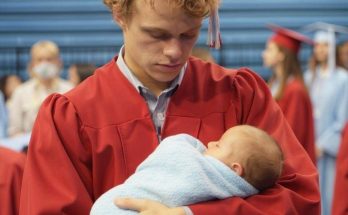66-Year-Old Woman Becomes Mother of Twins — and Faces Backlash for Her Bold Decision
Becoming a mother is one of life’s most profound journeys — a role as timeless as humanity itself.
For some, motherhood arrives early, often unexpectedly. For others, it’s the result of years of longing and persistence. However it begins, welcoming a child into the world is always a remarkable gift — and every mother deserves to be celebrated for the strength and love it takes to bring new life into the world.
But as we know, life rarely follows a script. Some women become mothers in their teens, others much later in life. And then there are those who, for various reasons, may never have the chance to carry a child. Each path is valid, and every story is unique.
Yet not all mothers receive the same support — especially when their choices challenge societal norms.
Take the case of Maria del Carmen Bousada de Lara, a retired shop worker from Cádiz, Spain. In 2006, Maria made headlines around the world after giving birth to healthy twin boys — at the age of 66.
Her decision stunned many, including her own family. Maria had reportedly sold her home to pay for IVF treatment and traveled to a fertility clinic in California, where she is believed to have misrepresented her age — claiming she was 55 — in order to receive treatment.
Maria wasn’t trying to spark controversy. She simply believed in the right to choose when to start a family, regardless of society’s expectations.
“Sometimes life puts you between a rock and a hard place,” she told The Guardian. “Maybe things shouldn’t have been done the way they were, but it was the only way to achieve the dream I had carried for so long.”
Despite the medical and ethical debates that surrounded her decision, Maria remained firm in her belief that becoming a mother was her destiny.
In December 2006, she gave birth to twin boys, Christian and Pau, becoming the oldest known woman at the time to give birth. Her joy, however, was clouded by criticism. Some called her irresponsible. Even members of her own family labeled her selfish. Maria admitted she kept her pregnancy secret for a time, and that many thought she was joking when she finally shared the news.
Shortly after the birth, Maria was diagnosed with cancer. Her time with her sons was tragically brief — she passed away in 2009, just three years later.
Still, her story continues to spark conversations around age, fertility, and the evolving definition of motherhood. Was Maria reckless, or was she simply brave enough to defy convention and follow her heart?
One thing is certain: her journey reminds us that the desire to be a parent knows no boundaries — not even age.

A Bittersweet Ending: Maria’s Final Years and the Legacy She Left Behind
Tragically, Maria Carmen Bousada’s time with her beloved twin sons was heartbreakingly short. Just six months after giving birth to Christian and Pau, she was diagnosed with ovarian cancer.
“They’re still babies, so I haven’t told them,” she said at the time. “They’re too young for these things.”
As her health declined, Maria’s family stepped in to help care for the twins. In 2009, just three years after realizing her lifelong dream of becoming a mother, Maria passed away — leaving behind two little boys who would grow up without the woman who had fought so hard to bring them into the world.
Her brother Ricardo reflected honestly on her choices:
“I think she has done this too late in life … but now they are here. We love these beautiful boys.”
Despite the challenges, Maria’s community in Cádiz rallied behind the children. Pilar Pinto, a local resident, shared a recent glimpse into their lives:
“They are being well taken care of and are in great shape,” he said. “I see them here often in town.”
He added with heartfelt regret: “God didn’t let her enjoy her children very much. He should have given her more time.”
Until her final days, Maria stood firm in her belief that every woman has the right to decide when to become a mother. Her story remains a powerful and polarizing symbol of personal freedom, maternal love, and the ever-evolving definition of family.
What do you think about Maria’s decision to have children in her 60s? Should age define motherhood, or should a woman’s choice be the final word?
Rest in peace, Maria — your courage sparked a global conversation that still resonates today.



